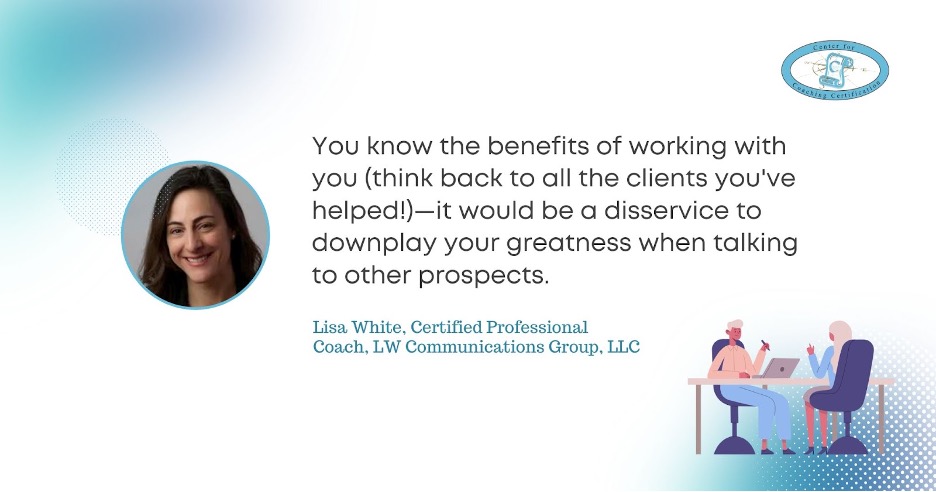
From running a campaign based on Fear, Uncertainty, and Doubt (FUD) to sharing detailed case studies, here are 13 answers to the question, “Can you share your most effective strategies for conveying the high quality of your services without putting others down or unauthentically bragging?”
- Start a Fear, Uncertainty, and Doubt (FUD) Campaign
- Let Customer Testimonials Speak for You
- Use a Net Promoter Score
- Focus on Comparing Differences, Not Downfalls
- Talk With Humble Words About Your Impressive Data
- Share Knowledge
- Brag Through Your Outstanding Customer Experience
- Highlight Your Own Portfolio
- Speak With Wonder in Mind and Humor in Tone
- Follow the 80/20 Content Marketing Rule
- Lead With a Desire to Serve
- Appeal With Accountability and Time Management
- Deliver Detailed Case Studies
Start a Fear, Uncertainty, and Doubt (FUD) Campaign
My company’s primary approach in marketing our services while avoiding putting others down is to start a “fear, uncertainty, and doubt” (FUD) campaign against competitors while focusing on our own strengths and the unique value that we provide.
What’s important here is to avoid naming competitors by using general terms to refer to other providers in our industry. This can include phrases like “other service providers” or “alternative IT consultants” instead of mentioning specific companies. We have used branded colors of our competitors as an indirect way of referring to them while still getting the message across. This can be a less direct way to make comparisons and help customers understand the unique value of our services.
The aim of this approach is to educate the market in a professional and unbiased manner, while also highlighting the unique strengths and capabilities of our own business.
- Antreas Koutis, Administrative Manager, Financer
Let Customer Testimonials Speak for You
A customer applauding your business is just a lot more impactful than you doing it yourself, which is why leveraging high-quality testimonials is the perfect route to take. It isn’t seen as bragging, and you’re not putting any other business out there down.
You’re simply showcasing how satisfied your clients have been so far, and these reviews could talk about anything from the efforts you put in, the high-quality service you provide, the support you offer your customers along the way, and even concrete data about the results you achieved.
- Harry Morton, Founder, Lower Street
Use a Net Promoter Score
We can communicate customer satisfaction through a Net Promoter Score (NPS). NPS polls customers after they use a product or service and infers its quality based on their response—whether they would recommend it to friends and family—which communicates genuine endorsements from real people who experienced the value.
- Carly Hill, Operations Manager, VirtualHolidayParty.com
Focus on Comparing Differences, Not Downfalls
If competitors come up, focus on comparing the differences in services offered—not the downfalls of your competitor. For example, instead of saying that your competitor has “terrible customer service,” stick to the fact that you offer 24/7 customer service, and your top competitor does not. Speaking negatively about others in your industry will not reflect highly on you or your business, so it’s best to discuss only how your services differ.
- Patricio Paucar, Co-Founder & Chief Customer Officer, yournavi.com
Talk With Humble Words About Your Impressive Data
Selling yourself requires a delicate balance of promotion and tact. You want to highlight why someone should hire you without appearing arrogant or inferior to your competition. The key is presenting solid, hard data about your previous success in an intelligent, objective way.
Doing so eliminates guesswork and allows potential clients to make an informed decision while also making them feel like they have made the best choice for their needs. It also shifts the focus away from promotion and onto tangible proof of quality; this is a much more effective strategy than relying on boastful bragging or putting others down.
- PiotrekSosnowski, Chief People & Culture Officer, HiJunior

Share Knowledge
One of the best tips I can give you is to share your knowledge, educate others, and teach them. If you can provide tangible evidence of your expertise and help people learn something new, that speaks to what you can do and the quality of your services.
Sharing knowledge allows you to build trust and respect with others and a rapport that can last for years. It also shows your passion for what you do and shows that you have a deep understanding of the subject. By taking the time to help others learn, you are giving yourself an opportunity to show how much you care and make a lasting impact. This will ultimately help you get more business and build strong relationships within the industry.
In short, sharing knowledge is one of the most powerful ways to show excellence without appearing boastful or competitive. It shows that you have something valuable to offer and are confident enough in your abilities to teach others.
- Arkadiusz Terpilowski, Head of Growth & Co-Founder, Primetric
Brag Through Your Outstanding Customer Experience
Spreading the positives of your high-quality services is integral to growing your customer base. Directly portraying this by peer comparisons might seem to demean other businesses, which is viewed in a bad way by people. Rather, having your existing customers speak about you and showcase what impact you have made could go a long way.
Using testimonials and a UGC-marketing approach to portray your high-quality sales can be an impressive way of getting more customers for your business. Going with the trend, it’s just perfect to align it all with real backstories, and people speaking about the positive impact thereafter.
Don’t just brag about what explicit features you have instilled in your service process; rather, focus directly on how efficiently you are bringing in the change! Serve it all with good stats, and that’s all. Moreover, push your customers to share their thoughts either by entering your giveaways or any other form of rewarding them.
- Walter Lappert, CEO, Triad Drones
Highlight Your Own Portfolio
Always let your portfolio speak for itself. There’s nothing appealing about going after another business. If you want to attract customers, focus on advertising the high quality of your own work and leave others out of it.
Make sure your company site includes references to previous clients and projects. Ideally, show metrics or content that can show how successful the venture was. If you stick to highlighting your own projects positively, you’ll win more business.
- Brian Munce, Managing Director, Gestalt Brand Lab
Speak With Wonder in Mind and Humor in Tone
Speaking about quality and accomplishments in a tone of wonder or with a little humor is one of the best practices. To inspire a sense of awe about a subject, get in touch with your own sense of wonder, and what makes your accomplishments awe-worthy. One of the best ways to do this is to use a little humor and personality. Show how you, the everyday person, became you, the competent professional.
- Alexandre Robicquet, Co-Founder & CEO, Crossing Minds
Follow the 80/20 Content Marketing Rule
The 80/20 rule of content marketing is a simple yet powerful concept that can have a big impact on the success of a company’s content marketing efforts.
80% of your content should educate, inform, or entertain-this content should provide real value to your target audience. It could be as blog posts, articles, videos, or infographics, and should aim to educate, inform, or entertain your audience on topics that apply to their needs and interests.
20% of your content should promote your products or services—we should focus this content on showcasing the benefits of your products or services and encouraging your audience to take action (e.g., make a purchase). This works because providing most of your content to educate your target audience means you are building trust and credibility with them.
- Shaurya Jain, Founder, Attention Always
Lead With a Desire to Serve
When conveying the value of your services, it’s all about coming from a place of knowing how valuable your coaching will be to your prospective client. You know the benefits of working with you (think back to all the clients you’ve helped!)—it would be a disservice to downplay your greatness when talking to other prospects. Also, don’t be afraid to talk about the successes some of your clients have experienced because of working with you!
- Lisa White, Certified Professional Coach, LW Communications Group, LLC

Appeal With Accountability and Time Management
A-level buyers of professional services want to know that you respect their time and that you value their experience. So, explain early in your relationship with a prospect or a new client that one way you get the results you do for your clients—and one thing they report they love about working with you—is by holding yourself and your clients to high standards of time management and mutual accountability.
These two phrases let others do the implied endorsement for you. Let the prospect know that you’re highly organized, such that you’re able to give them your full, high-quality attention when you’re working on their matters because you plan your commitments and your calendar carefully. If you’re truly organized and do, in fact, deliver high value to your clients, you’re not bragging; it’s about being comfortable in your own professional skin.
- Bill Jawitz, Law Practice Development Coach, Lawyer Time Management
Deliver Detailed Case Studies
A great way to emphasize the quality of your services without putting others down is to create detailed case studies that explain customer pain points and how you resolved them. This allows you to showcase the high quality of your services without directly comparing yourself to your competitors.
You can also use these case studies to show the outcomes that can be achieved with your services, such as increased efficiency or reduced costs. These case studies should provide readers with step-by-step details of how you helped the customer, including any challenges faced along the way and how they were addressed.
You should write your case studies in a way that shows your expertise and speaks to the customer’s specific needs. Doing this will create an impressive portfolio of success stories that can illustrate the quality of your services.
- Derek Bruce, Sr. Director, Newcastle First Aid Courses





